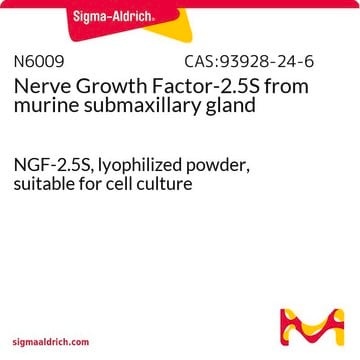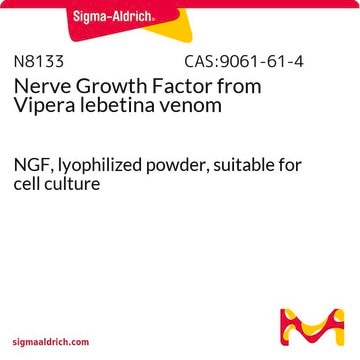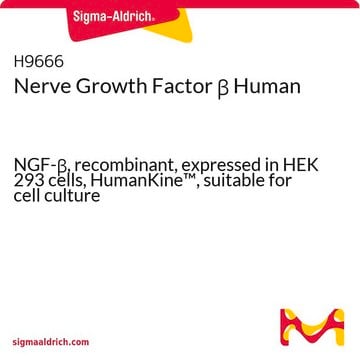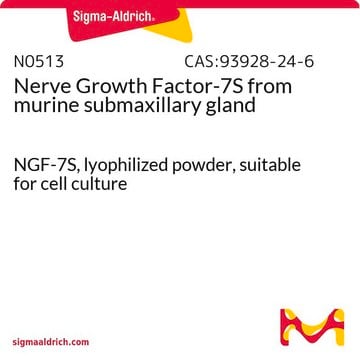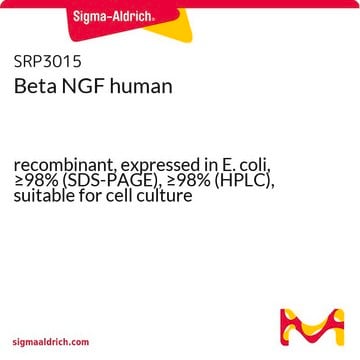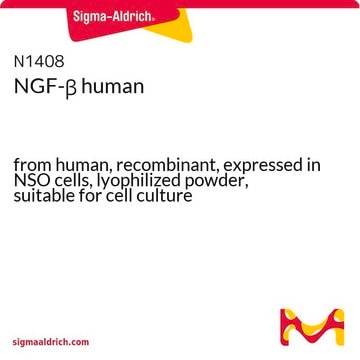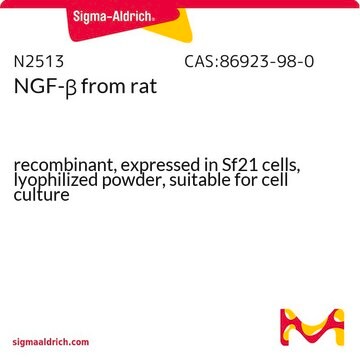N5415
Nerve Growth Factor-ß human
recombinant, expressed in HEK 293 cells, lyophilized powder, suitable for cell culture
Synonym(s):
β-NGF, BNGF, NGF-β, NGF-beta
About This Item
Recommended Products
biological source
human
Quality Level
recombinant
expressed in HEK 293 cells
Assay
≥95% (SDS-PAGE)
form
lyophilized powder
potency
≤16 ng/mL ED50/EC50
mol wt
protein calculated mol wt 13.5 kDa (Monomer)
packaging
pkg of 10 μg
pkg of 100 μg
technique(s)
cell culture | mammalian: suitable
impurities
≤1 EU/μg Endotoxin (β-NGF)
UniProt accession no.
storage temp.
−20°C
Gene Information
human ... NGF(4803)
General description
Biochem/physiol Actions
Caution
Physical form
Preparation Note
Storage and Stability
Analysis Note
Disclaimer
Storage Class Code
11 - Combustible Solids
WGK
WGK 3
Flash Point(F)
Not applicable
Flash Point(C)
Not applicable
Certificates of Analysis (COA)
Search for Certificates of Analysis (COA) by entering the products Lot/Batch Number. Lot and Batch Numbers can be found on a product’s label following the words ‘Lot’ or ‘Batch’.
Already Own This Product?
Find documentation for the products that you have recently purchased in the Document Library.
Customers Also Viewed
Our team of scientists has experience in all areas of research including Life Science, Material Science, Chemical Synthesis, Chromatography, Analytical and many others.
Contact Technical Service